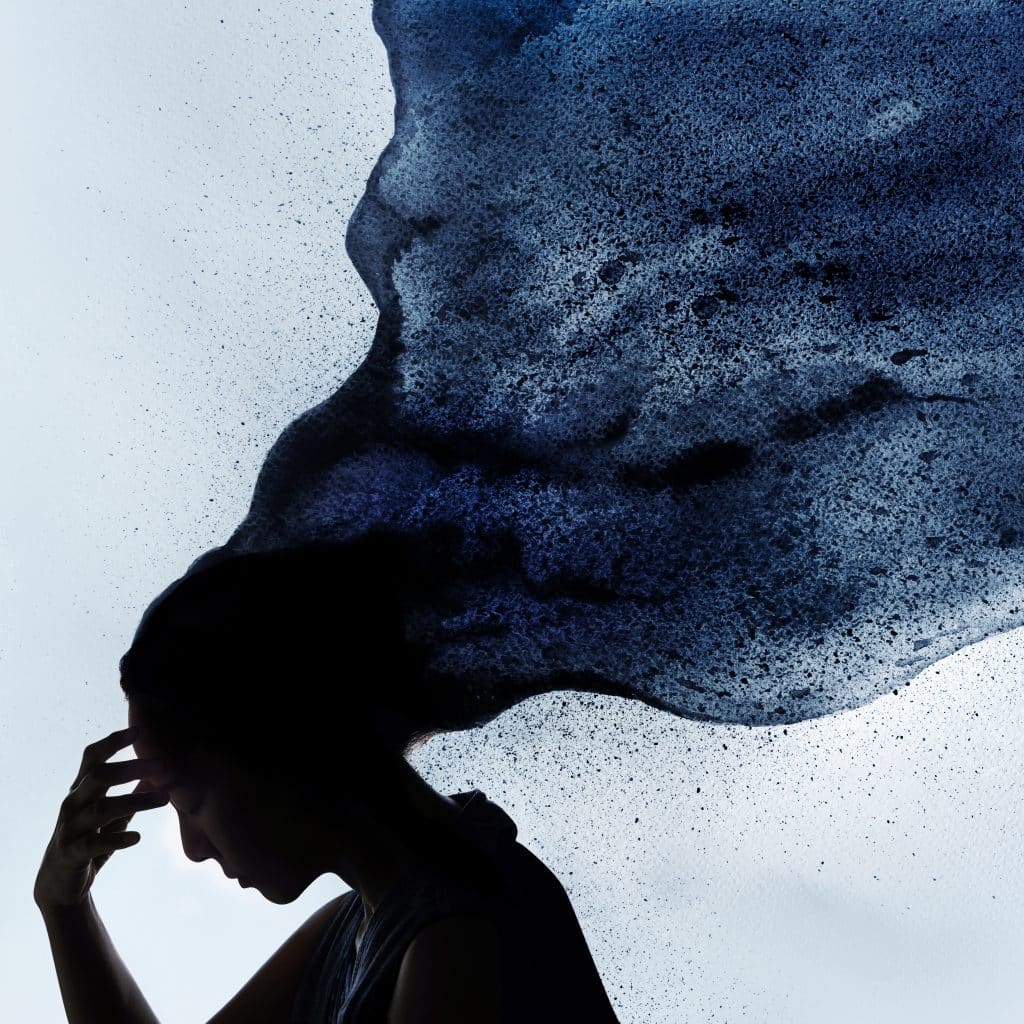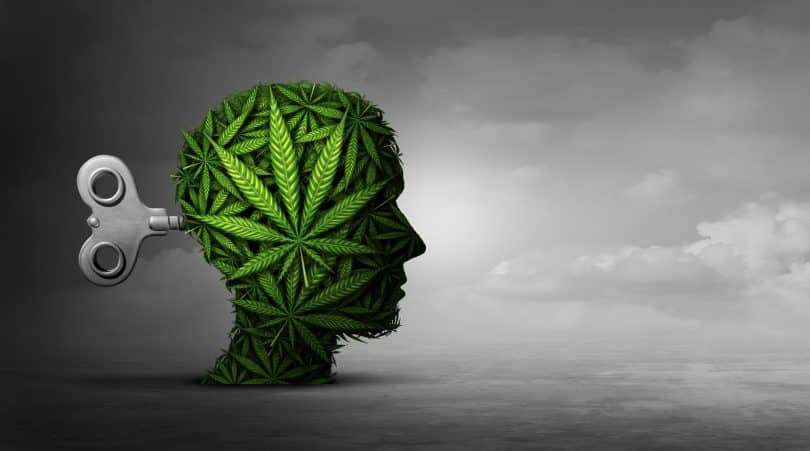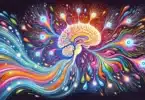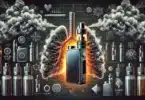It’s estimated that one-in-three women and one-in-five men in the U.S. will experience an episode of major depression by the age of 65. In some countries, the estimates are even higher, for example, in the Netherlands and Australia it’s 40% of women and 30% of men. As people tend to transition in and out of episodes that may or may not be related to life events, depression is not easy to define or treat.
There’s a long list of potential causes that includes long-term unemployment, family history, personality and illness. And the list continues to grow, which is why researchers are keen to explore a new understanding of depression and approaches to treatment; and cannabis could be one of those treatments.
What is Depression?
Today, rates of depression are on the rise, due to factors unique to contemporary life such as smartphones and social media. Studies showing young people who spend most time on Instagram and Facebook are way more likely to report depression. One suggested reason for this is the isolating nature of social media. But feelings of isolation and loneliness have reached epidemic levels across all demographics. In one U.K. COVID-related study, 35% of young people said they feel lonely most of the time, and another study reported that one-third of adults 45 and older feel lonely. Loneliness is associated with higher rates of depression. However, loneliness is a feeling and steps can be taken to correct it, whereas depression is a complex mental health condition with a variety of treatment plans.

Depression is a period of feeling low that can last for a long time. Though it may not stop someone from leading a normal life, it’s more than just feeling down, as everything seems harder to do, each activity tainted with a sense of hopelessness. Simple tasks like getting out of bed or getting dressed may seem pointless. At its most severe, depression can be life threatening due to suicidal ideation. A depressive state can be described as mild, moderate or severe depending on the impact of the symptoms. There are specific types of depression, classified into six main categories.
- Major Depressive Order is a mood disorder with a variety of symptoms that include low mood, weight gain, lack of interest in previously interesting activities, changes in sleep, fatigue, feelings of despair and suicidal thoughts. When symptoms are severe, this condition is highly distressing.
- Dysthymia is a mild, long-last type of depression with similar symptoms that tend to be lower in intensity but last longer.
- Bipolar Disorder is a type of depression where the person swings between periods of abnormally elevated mood (mania) and depressive episodes. When experiencing mania, people can go without sleep and food, and can become easily irritated or agitated.
- Psychotic Depression is when a depressed person also experiences psychosis, which means losing touch with reality. Symptoms can include false beliefs and delusions, hallucinations, anxiety, agitation, confusion and paranoia. These patients can also experience problems with sleep and concentration, and have suicidal thoughts.
- Postpartum Depression affects some mothers after they give birth. This type of depression is linked to major hormonal shifts that occur during pregnancy.
- Seasonal Affective Disorder (SAD) is a type of depression that occurs at a certain time of year with symptoms that include irritability, headaches, fatigue and blurred vision.
Treatments for Depression
There’s a wide range of treatments available for depression depending on the type being treated. In some cases of SAD, for example, the recommended treatment is to supplement with vitamin D, and in others, light therapy is used. Treatments for more severe forms of depression typically include medications and/or therapy. For major depressive disorder, the treatment options include talk therapies such as cognitive-behavioral therapy, humanistic therapy, psychodynamic therapy and mindfulness-based approaches.
Thank you for making your way over. Remember to sign up for the Cannadelics Weekly Newsletter for updates direct to your email; and to access deals on stuff like cannabis flowers, vapes, edibles, smoking devices, cannabinoid compounds (like HHC), and way more. Tis the season to get good and stoned. Responsibly.
Other approaches include transcranial magnetic therapy (TMS) and anti-depressant medications including serotonin reuptake inhibitors (SSRIs), serotonin-norepinephrine reuptake inhibitors (SNRIs), and tricyclic antidepressants (TCAs.) The purpose of medications is to address chemical imbalances in the brain. Similar treatment options are used for other depressive disorders. For dysthymia, treatment options are the same as for major depressive disorder but also include lifestyle changes such as improved diet and exercise. For bipolar disorder, a psychiatrist may recommend a mood stabilizer such as lithium.
For psychotic depression, a doctor will typically prescribe a mix of antidepressant and antipsychotic medications. TMS is also used. In the case of postpartum depression, lifestyle changes are recommended, including taking time to relax and recharge away from the newborn. In each case, the recommended treatments are a process of trial and error until doctor and patient agree on a course of therapy that produces results, either stabilizing patient mood and/or improving quality of life. In cases of mild depression, some people prefer to opt for non-drug approaches such as natural remedies.
A health treatment that isn’t considered standard Western medical practice is referred to as complementary and alternative medicine (CAM.) Examples of CAM include acupuncture, aromatheraphy, biofeedback, dietary supplements, exercise, hypnosis, meditation, massage therapy and yoga. Music therapy is another approach, as music is known to be a powerful healing agent for millennia. It was used by the 6th century B.C. philosopher Pythagoras, and also for wounded soldiers during World War II. Plant medicine is another ancient and powerful treatment for a range of mood disorders. In recent decades, studies are demonstrating the healing power of plants, in particular, cannabis against depression, anxiety and PTSD.
Rethinking Treatments for Depression
In July 2022, a study by the University College London (UCL) found “no clear evidence” that chemical imbalances, in particular low levels of serotonin, are linked to depression. The spike in use of antidepressants inspired this new study. In the U.S. alone, it’s estimated that almost one-third of adults over 18 are on some form of antidepressant, and figures are similar for other Western countries. In new analysis, it was revealed that up to 90% of people believe that depression is caused by chemical imbalances in the brain.
“Our view is that patients should not be told that depression is caused by low serotonin or by a chemical imbalance, and they should not be led to believe that antidepressants work by targeting these unproven abnormalities,” said the study’s lead author, Joanna Moncrief, professor of psychiatry at UCL. Further studies show stressful life events are a stronger indicator for depression.
This is not the first time the medical community has been called into question in relation to depression. In his 2018 book, Lost Connections, author Johann Hari, detailed the failings of his journey with antidepressants. He was first prescribed pills at age 18, calling it a “chemical kiss.” In his 30s, Hari began to ask new questions about his depression, wondering about possible lifestyle changes to make life more bearable, and he wondered why his doctors had never followed this line of inquiry. His book paints the approach of the medical community as unimaginative and even lazy. However, he also makes it clear there are no easy solutions to this problem. For Hari, one possible course of action is a path of reconnection. He attributes much of our current malaise to a pronounced disconnection from self, community and nature.

Psychologist Eiko Fried takes the concept one step further and asks if depression even exists, or if it’s just a range of symptoms that causes each other, for example, insomnia leads to low mood, which leads to irritability, and so on. The thinking here is that by looking at depression as a range symptoms, it’s easier to find a path of treatment. In fact, there are an arsenal of tests out there, aimed at detecting the existence of depression, and like anything, it’s about matching the right test and treatment with the right patient.
FINAL THOUGHTS
With so much uncertainty, it makes sense that cannabis is emerging as a potential treatment for depression. That said there’s no clear evidence that cannabis helps with depression, and in some cases, may make it worse. But there’s early research that suggests cannabis users are happier and more satisfied with life in general, and a 2020 study that found cannabis decreased stress-related symptoms by more than 95%. For now, what’s clear is that there’s a lot more work to do in this field, and it’s very possible that cannabis could lead to a new understanding of depression, as well as new treatment options. For people with depression, this news brings hope.
Welcome all! Thanks for joining us today at Cannadelics.com; a news site where we work hard to bring you the best reporting from the cannabis and psychedelics spaces. Drop by regularly to stay updated on everything going down, and subscribe to the Cannadelics Weekly Newsletter, so you’re never late to get the news.








